Peer Institute
Brought to you by DBHIDS and the Peer Culture Community Inclusion Unit (PCCI)



Hope. Wellness. Empowerment.
The Peer Institute actively supports individuals interested in becoming certified peers of all types and storytellers. We offer training information, news updates, and job opportunities for community members and alumni of our supported programs.
For healthcare providers, we offer tools to effectively integrate certified peers into your services.
What is a Peer Supporter?
According to National Association of Peer Supporters (NAPS) A peer supporter is an individual with a life-altering lived experience of psychiatric, substance use, or other challenges who has made a personal commitment to his or her own recovery and has a desire to use what was learned from one’s own lived experiences to assist others with similar challenges.
Peer Specialists are uniquely positioned to help others in the community on their paths to wellness because they have navigated mental health and/or substance use challenges.
Peer Specialists play an important role in supporting individuals through recovery by providing person-centered care. They use diverse skills, activities, and resources, and foster a supportive relationship built on respect, understanding, and advocacy. This approach ensures that each person receives assistance tailored to their specific needs and aspirations as they work towards better health and mental well-being, with an emphasis on connecting them to community resources.
Individuals interested in becoming certified peers may obtain many different certifications including but not limited to Certified Peer Specialist, Certified Recovery Specialist, and Community Health Workers, pending verification of specific requirements. Each certification opens doors to new opportunities to make a difference in people’s lives.
Peer Culture and Community Inclusion Unit
The vision of PCCI is community partnerships promoting pathways to wellness. Our goal is healthy individuals, families, and communities, free of stigma, with equal access to health resources sharing their lived experiences for continued holistic wellness. In order to realize this mission, the PCCI Unit actively engages, supports, and models the promotion of hope, wellness and empowerment throughout the Behavioral Health system of Philadelphia and beyond. Our motto is to “Model, Inspire, and Inform”.
Learn more about the Peer Culture and Community Inclusion Unit
The Peer Support Toolkit is designed to support behavioral health treatment agencies a they integrate peer providers into service settings.
The resources and information provided are relevant for executive leadership as well as supervisors and peer staff. The toolkit is structured as an interactive PDF that presents key information in brief reads yet preserves your opportunity to delve deeper into subjects as your time and interests dictate. It is organized in four modules, each addressing specific implementation issues relevant to agencies in various stages of integrating peer support services.
- Preparing the Organizational Culture
- Recruiting and Hiring Peer Staff
- Service Delivery
- Supervision and Retention
Mission
The Mission of the Department of Behavioral Health and Intellectual disAbility Services is to educate, strengthen, and serve individuals and communities so that all Philadelphians can thrive.
Vision
We envision a Philadelphia where every individual can achieve, health, well-being, and self-determination.
Values
Equity. Equality. Excellence. Integrity. Outcomes.
Commitment to the whole population. Right to recovery, resilience, and self-determination.
Listening to the Peer Support Workforce
Following more than six years of participatory action activities at peer support workforce conferences, three researchers and practitioners with lived experience, Jeremy Reuling, Rita Cronise, and Jessica Wolf, have developed this agenda identifying ten peer support workforce priorities with recommendations for action based on what they heard from members of the workforce. The Action Agenda can be used both to improve stakeholders’ understanding of challenges faced by the peer workforce, and as a guide to specific strategies to address them effectively at all stakeholder levels.
Ours Services
Young Men’s Group (virtual) – Mondays: 12:00 – 1pm
A space for male young adults (ages 14 – 30+) to discuss topics like relationships, independent living, and more.
For more info, contact Mary Beth Morgan or call 215-634-2000 Ext. 335
Young Adults with Disabilities Club (virtual) – Mondays: 2:30 – 3:30pm
Join us for Chair Yoga, LRI updates, and discussions on topics like advocacy, employment, cooking, and more! Open to ages 14 – 32+
For more info, contact Mary Beth Morgan or call 215-634-2000 Ext. 335
Blind and Low Vision Support and Resources Group (Zoom) – Tuesdays: 1:00 – 2pm
A peer support group for individuals who are blind, low vision, or have disabilities.
For more info, contact Latoya Maddox for the Zoom link.
Deaf Social Group in ASL (virtual) – Tuesdays: 2:00 – 3pm
Connect, socialize and discuss Deaf rights in American Sign Language.
For more info, contact Igor Khmil or call 267-507-1178 (VP) for the Zoom invite
Psychiatric Disability Peer Support Group (virtual) – Thursdays: 11:00am – 12pm
A safe space to share mental health journeys, connect, and find support.
For more info, contact Morgan Hugo or call 215-634-2000 Ext. 124
Alternate contact: Kwanesha Clarke at 215-634-200 Ext. 141
The Autistic Art Coalition of Philadelphia Express Yourself Art Collaboration – Thursdays: 1:00 – 2pm
At the Liberty Resources Wade Blank meeting room A
The meetings practice artistic creativity in many different forms! Everyone is welcome to attend.
For more info, contact Mary Beth Morgan or call 215-634-2000 Ext. 335
Alternate contact: Domonique Howell
Recovery Support Services are provided by peers with lived experience of recovery from a substance use disorder who are Certified Recovery Specialists (CRS). CRS support people seeking recovery, individually or in groups, at our Recovery Community Centers, in hospitals, and in the community.
Project HOME’s Adult Education and Employment program is critical to our whole-person model of care that empowers Philadelphians who are low-income or have experienced homelessness to achieve recovery and self-sufficiency. The program offers digital literacy, career skills, and occupation-specific workforce training. It is open to adults eighteen years of age and older. All programming is trauma-informed, developed to address the specific needs of our participants, and tailored based on feedback.
What we offer:
Mental Health Outpatient MHOP walk-ins welcome on Tuesday’s from 8am – 12pm or by appointment.
MHOP provides individual and family therapy services to children and adults (age 2 and up). Psychiatric appointments can be scheduled after the intake is complete.
Easy and quick access to adult and child psychiatric evaluation and medication monitoring.
Telehealth, Evening and Saturday appointments available.
Substance Use Outpatient:
- Adult walk-ins welcome (Monday – Friday)
- Adolescents (age 14 – 18) walk-ins welcome (Monday – Friday)
- MAT services available (Suboxone, Vivitrol, Sublocade)
- Easy access to psychiatric evaluation and medication monitoring
- Group and individual therapy
- Evening treatment available
Additional Supports:
- Peer Support Services (CPS and CRS)
- Case Management Services in ICWC, BCM, D/A ICM teams 24/7 on call
- Care Coordination
- Physical Health Screening
- Resources and Medical Care Coordination
- Weekly WRAP groups
- Special Events,
- Morning Wellness Meetings and Community Inclusion Events
- Snacks and assists with SDOH needs
Resources for help developing peer support services. Includes PDFs, videos and sample documentation forms.
For more information about PCCI or our training programs, e-mail us at: DBHIDS.PeerCulture@phila.gov
OR fill out the form below.


